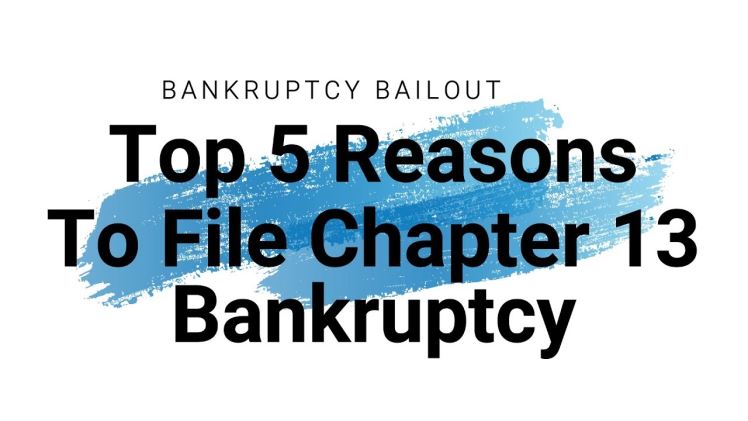5 Reasons to File for Chapter 13 Bankruptcy

Financial difficulties can strike anyone at any time. When they do, it’s crucial to understand the options available to navigate through these challenges. One such option is Chapter 13 bankruptcy. This form of bankruptcy allows individuals with regular income to create a plan to repay all or part of their debts.
However, filing for Chapter 13 bankruptcy does require careful consideration. It’s not a quick fix and requires commitment to a three- to five-year repayment plan. Also, it’s worth noting that a Chapter 13 bankruptcy will remain on your credit report for seven years. So, before making any decisions, consult with a knowledgeable bankruptcy attorney from Benenati Law Firm. They can help you understand the complexities of Chapter 13 bankruptcy and guide you through the process.
Here are five reasons why filing for Chapter 13 bankruptcy could be beneficial.
- Protect Your Home from Foreclosure
One of the most significant benefits of Chapter 13 bankruptcy is its ability to halt foreclosure proceedings. If you’re behind on your mortgage payments, Chapter 13 allows you to repay your arrears over time while keeping your home. As long as you make your bankruptcy plan payments, your home will remain safe from foreclosure.
- Debt Consolidation and Repayment Plan
Chapter 13 bankruptcy provides a structured repayment plan, allowing you to consolidate your debts into manageable monthly payments. The amount you pay is based on your income, expenses, and types of debt. This plan simplifies the repayment process and often results in lower monthly payments.
- Protection of Non-Exempt Assets
Unlike Chapter 7 bankruptcy, where non-exempt assets may be liquidated to repay creditors, Chapter 13 allows you to keep valuable non-exempt property, such as an expensive car or a second home. As long as your repayment plan covers the value of these assets, you can hold onto them.
- Opportunity to Reschedule Secured Debts
Apart from your mortgage, Chapter 13 also allows you to reschedule secured debts and extend them over the life of your Chapter 13 plan. This spreading out of payment obligations can reduce the amounts you’re required to pay on these debts each month.
- Discharge of Additional Debts
While both Chapter 7 and Chapter 13 allow for the discharge of many types of unsecured debt, Chapter 13 offers discharge provisions that are unavailable under Chapter 7. These include certain debts that cannot be discharged in Chapter 7, such as debts for willful and malicious injury to property, debts incurred to pay non-dischargeable taxes, and debts arising from property settlements in divorce or separation proceedings.




